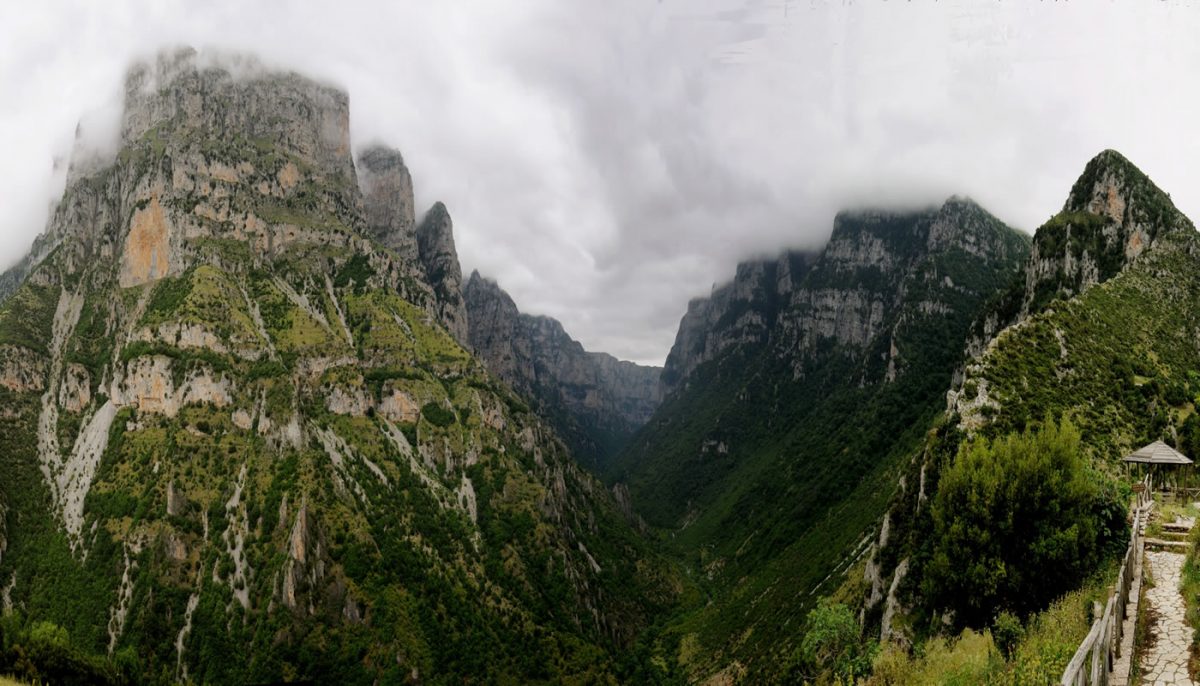Vikos-Aoos Geopark includes five distinct types of characteristic ecosystems, clearly distinguished by the dominant vegetation. At lower altitudes (375 m to 700 m) we encounter ecosystems of evergreen sclerophyllous shrubs and then oak forest ecosystems (700 m – 1.000 m).
In the mid altitudes (1.000 m to 1.600 m) there are coniferous and beech forests while at high altitudes (1.600 m to 2.000 m) there are bosnian pine forests and at even higher altitudes (2.000 m to 2.637 m) subalpine and alpine meadows.
These ecosystems are quite often spread over relatively large areas or form mixed sets, creating the impression of a complex mosaic where individual sections can be distinguished by the particular leaf color of the different trees.
However, beyond these five major ecosystems, there are also others which occupy smaller areas, such as rocky slopes, gorges and vertical cliffs of high mountains, as well as aquatic ecosystems (lakes, rivers) and riparian vegetation ecosystems. There are also “anthropogenic ecosystems”, which are decisively shaped by human impact as is the case of Konitsa plain.
All these ecosystems host remarkable numbers of wild fauna and flora species, the number and variety of which depends largely on their particular ecological requirements. In the wider area of the Geopark more than 1.700 plant species and subspecies have been found, while wildlife is equally rich as the wider area’s ecosystems host around 250 species of vertebrates and numerous invertebrate species.





Τα σχόλια είναι κλειστά!